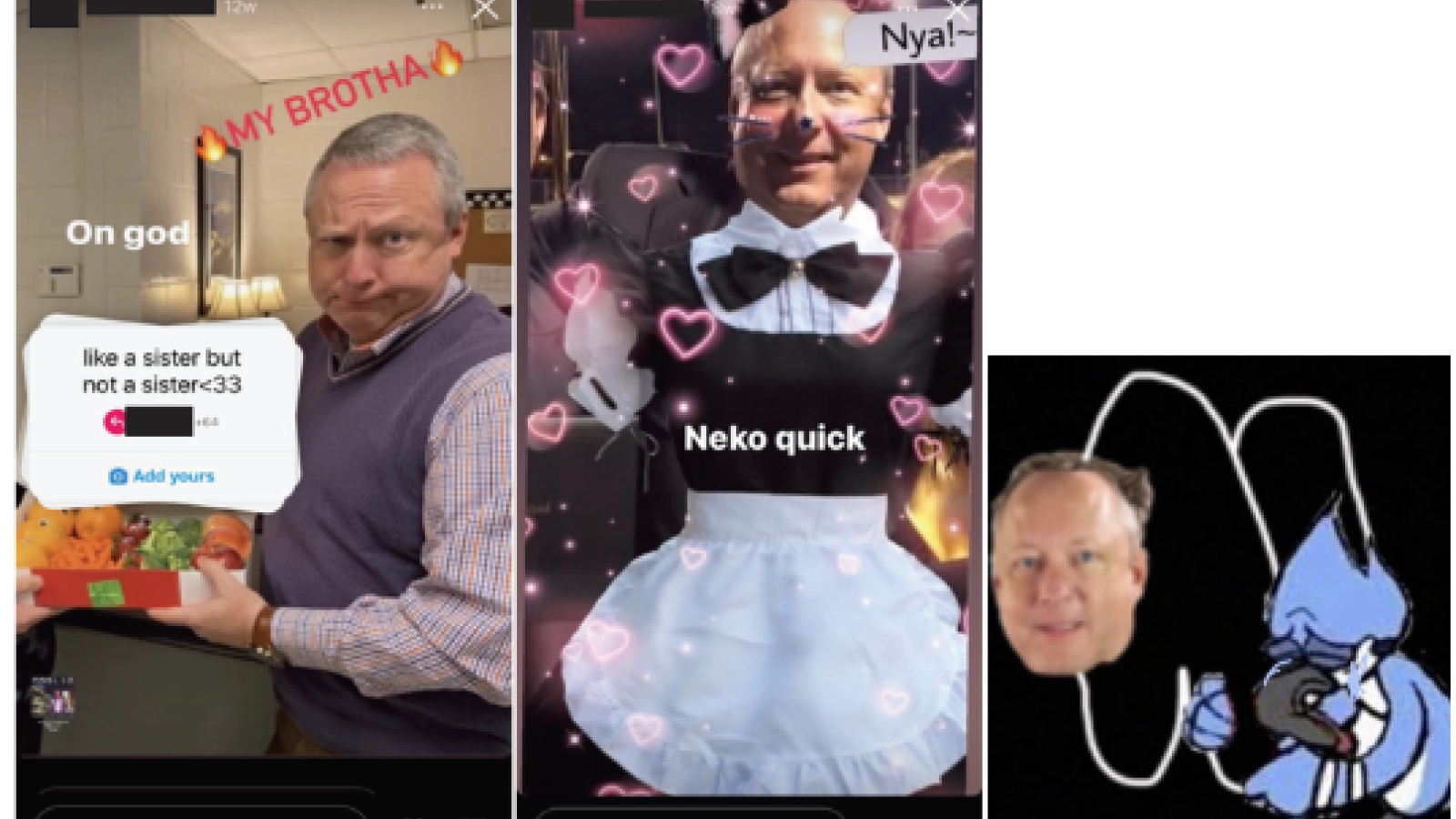Principal knowingly flouted SCOTUS by suspending student for posting memes off campus: lawsuit
Supreme Court sharply limited school authority to police students' social media outside school, but Tullahoma City Schools allegedly punished student on disability plan for silly renderings of principal.
Two years after the Supreme Court sharply limited the authority of school districts over their students when not on campus or at school-sponsored programs, a high school principal faces a lawsuit alleging he suspended a student for unflattering social media posts about him, despite having known the legal precedent.
The Foundation for Individual Rights and Expression filed a First and Fourteenth amendments lawsuit on behalf of the rising senior, known only by his initials I.P., against Tennessee's Tullahoma City Schools, recently departed Principal Jason Quick and Assistant Principal Derrick Crutchfield.
Because the suspension is on the student's permanent record, it will "likely impair I.P.’s ability to receive scholarships and gain admission to top colleges and universities because schools assess applicants’ academic and disciplinary records," the suit says.
It accuses Quick of trying to conceal his instigating role in the 17-year-old's initially imposed five-day removal from school by sending him to Crutchfield to receive punishment after both grilled him about the meaning of his Instagram memes and forced I.P. to read aloud the student handbook's social media policy, which FIRE deems unconstitutionally vague.
The principal told the district April 13 he would resign effective June 30, three years after he took the helm, in light of "all that has been accomplished."
Quick told staff in another letter, quoted by The Tullahoma News, that he had expected to end his career at Tullahoma High School but that "the past several weeks" had shown him that he needed to "focus on other priorities in my life, both personally and professionally," especially family.
It's not clear what Quick is doing now, and FIRE told Just the News it didn't know. He often shares tweets from the University of Alabama Huntsville College of Education, of which his wife, Beth Quick, is the chairwoman. Neither of them, nor the district, answered queries about the suit or circumstances of Quick's departure.
“The First Amendment bars public school employees from acting as a 24/7 board of censors,” FIRE attorney Conor Fitzpatrick said in a press release. A spokesperson confirmed FIRE expects to overcome the individual defendants' qualified immunity from personal liability as government employees by showing they ignored "clearly established law."
The suit includes the Instagram memes used by I.P. to puncture Quick's self-serious presentation at school, posted after the 2021-2022 school year ended in May and through the second day of school this academic year, Aug. 2.
For the first meme, the student added the phrases "like a sister but not a sister [heart emoticon]" and "On god" to a photo of Quick holding a box of fruits and vegetables that the principal himself had posted. It was partly intended to show "a close friendship between I.P. and Quick" and signify the boy's "firm belief in a message," the suit says.
The second, created by another user but reposted by I.P. on a family vacation in Italy, rendered Quick an "anime cat" in a French maid outfit. It called him "neko [Japanese for cat] quick" and showed him meowing, a "satirical commentary" on Quick's school reputation.
The third – posted at home eight days before he was suspended – showed a bird modeled after a Cartoon Network character in a relationship with Quick, modeled after a character from the online game Among Us.

I.P. didn't tag Quick in any posts, and FIRE said no evidence has been provided that they caused "material disruption or substantial disorder" at school or prompted complaints.
The boy's mother B.P. told Quick and Crutchfield in an Aug. 12, 2022 meeting that her son's suspension, issued two days earlier, was prohibited by the Supreme Court's 2020 decision in Mahanoy Area School District v. L. A., a minor, et al., in favor of the cheerleader, and issued them a document preservation letter, according to the suit.
The 8-1 SCOTUS ruling sided with a cheerleader given a yearlong suspension from her junior varsity squad for a profane weekend Snapchat rant about not making the varsity squad, posted from a convenience store and visible only to her friends.
The Biden administration supported the Mahanoy Area School District's argument that the potential for cyber bullying and harassment justify its authority over student speech in non-school settings including social media. Justices were unwilling to erode the "substantial disruption" standard from the Vietnam war-era Tinker precedent on student speech, however.
Quick allegedly told the mother the three posts were the basis for the suspension, which he reduced from five days to three – the punishment in the student handbook for "fistfights" – in her presence, according to the suit.
Both officials "knew or should have known" I.P. had been diagnosed with clinical depression and anxiety, and "had reason to know" he had an active disability accommodation plan.
The boy "experienced sweating, shortness of breath, and lost feeling in both arms" when Crutchfield gave him the five-day suspension Aug. 10. The official called the mother to pick up her son, who was "slumped over a chair" and used a wheelchair to leave, though he didn't need the emergency room trip the boy's doctor feared, the suit says.
The social media policy gives the principal unspecified "discretion" to punish students who disseminate any "unauthorized or misrepresented photograph, video, or recording" that even "results in the embarrassment, demeaning, or discrediting of any student or staff," regardless of intent. Using social media "unbecoming of a Wildcat" – the school mascot – is also prohibited.
It specifically authorizes out-of-school suspension and expulsion but gives no definitions or examples of prohibited conduct, according to the suit. The officials interpret the policy to prohibit "posting non-disruptive images satirizing school administrators," thus chilling the speech of all students and causing ongoing harm to I.P.
Beyond Mahanoy and Tinker, the suit claims the defendants ignored other relevant SCOTUS precedents including 2017's Tam, which struck down the federal government's ban on trademarking "disparaging" phrases, and 2019's Brunetti, which favored a trademark application by fashion company FUCT. Both were viewed as mortal threats to school speech codes.
FIRE seeks preliminary and permanent injunctions against the speech-related school policies and expungement of the boy's suspension, court declarations they are all unconstitutional and compensatory, nominal and punitive damages.
The Facts Inside Our Reporter's Notebook
Videos
Links
- First and Fourteenth Amendment lawsuit
- The principal told the district April 13
- The Tullahoma News
- his wife Beth Quick chairs
- press release
- Instagram memes used by I.P.
- 8-1 SCOTUS ruling sided with a cheerleader
- posted from a convenience store
- social media policy
- mortal threats to school speech codes
Other Media
















